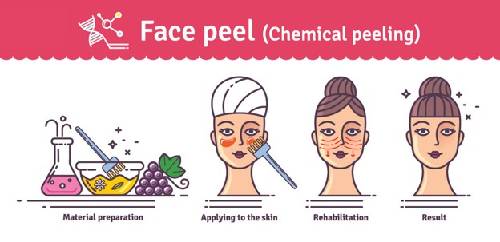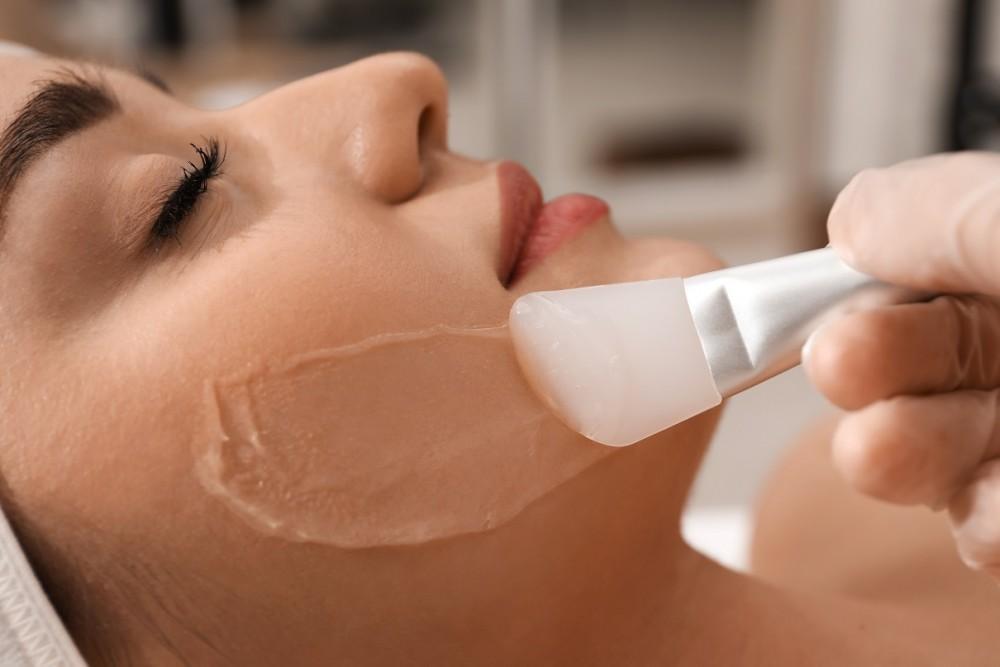In the quest for flawless and radiant skin, chemical peels have emerged as a trusted ally. These treatments offer a transformative solution for a variety of skin imperfections, from acne scars to uneven pigmentation. At Skin-City Gandhidham, we understand the importance of providing you with the information you need to make informed decisions about your skincare journey. In this article, we will delve into the world of chemical peels, exploring their different types, applications, and how they address various skin concerns.
Understanding Chemical Peels
Chemical peels are non-invasive cosmetic treatments that involve the application of a chemical solution to the skin. This solution gently exfoliates the top layer of skin, promoting the shedding of damaged and dead skin cells. The result is a smoother, more even-toned complexion with reduced imperfections.

Types of Chemical Peels
Chemical peels come in different types, each catering to specific skin concerns and conditions. Here’s an overview of the main types of chemical peels:
- Superficial Peels:
- These peels are mild and target the outermost layer of the skin. They are effective for improving skin texture, reducing fine lines, and addressing minor pigmentation issues.
- Medium Peels:
- Medium-depth peels penetrate deeper into the skin. They are suitable for treating moderate pigmentation, sun damage, and certain types of acne scars.
- Deep Peels:
- Deep peels are the most intensive and can address severe skin imperfections, including deep wrinkles and significant pigmentation concerns.
Applications of Chemical Peels
Chemical peels offer versatile solutions for a range of skin concerns:
- Acne and Acne Scars: Chemical peels can help unclog pores, reduce acne breakouts, and fade the appearance of acne scars.
- Hyperpigmentation: Peels are effective in reducing the appearance of sunspots, age spots, and uneven skin tone.
- Fine Lines and Wrinkles: Chemical peels stimulate collagen production, which can help improve skin elasticity and reduce the appearance of fine lines and wrinkles.
- Skin Texture: They can smooth the skin’s texture, leaving it softer and more youthful in appearance.
- Melasma: Peels can be used to lighten melasma, a skin condition characterized by dark patches on the face.
Customized Treatment Plans
At Skin-City Gandhidham, our experienced specialists assess your skin’s unique needs and concerns to create a customized chemical peel treatment plan tailored to your goals. This personalized approach ensures that you receive the most effective and safe treatment for your skin.
Recovery and Aftercare
After a chemical peel, it’s essential to follow proper aftercare to maximize results and minimize downtime. Here are some post-peel skincare tips:
- Hydration: Keep your skin well-hydrated with a gentle, non-comedogenic moisturizer.
- Sun Protection: Shield your skin from the sun with a broad-spectrum sunscreen, even on cloudy days.
- Avoid Harsh Products: Steer clear of harsh skincare products, like retinoids or AHAs, for a few days post-peel.
- Gentle Cleansing: Use a mild cleanser and avoid scrubbing your skin.
- Follow Specialist’s Advice: Adhere to any specific instructions provided by your Skin-City Gandhidham specialist for optimal results.
Conclusion
Chemical peels are a powerful tool in achieving smoother, more youthful, and radiant skin. Whether you’re dealing with acne scars, pigmentation issues, or the signs of aging, chemical peels can be tailored to address your unique concerns. At Skin-City Gandhidham, we are dedicated to helping you unlock the potential of your skin through safe and effective treatments.
If you’re considering a chemical peel or have questions about which type is right for you, don’t hesitate to reach out to our knowledgeable team. We’re here to guide you on your journey to flawless, rejuvenated skin.


